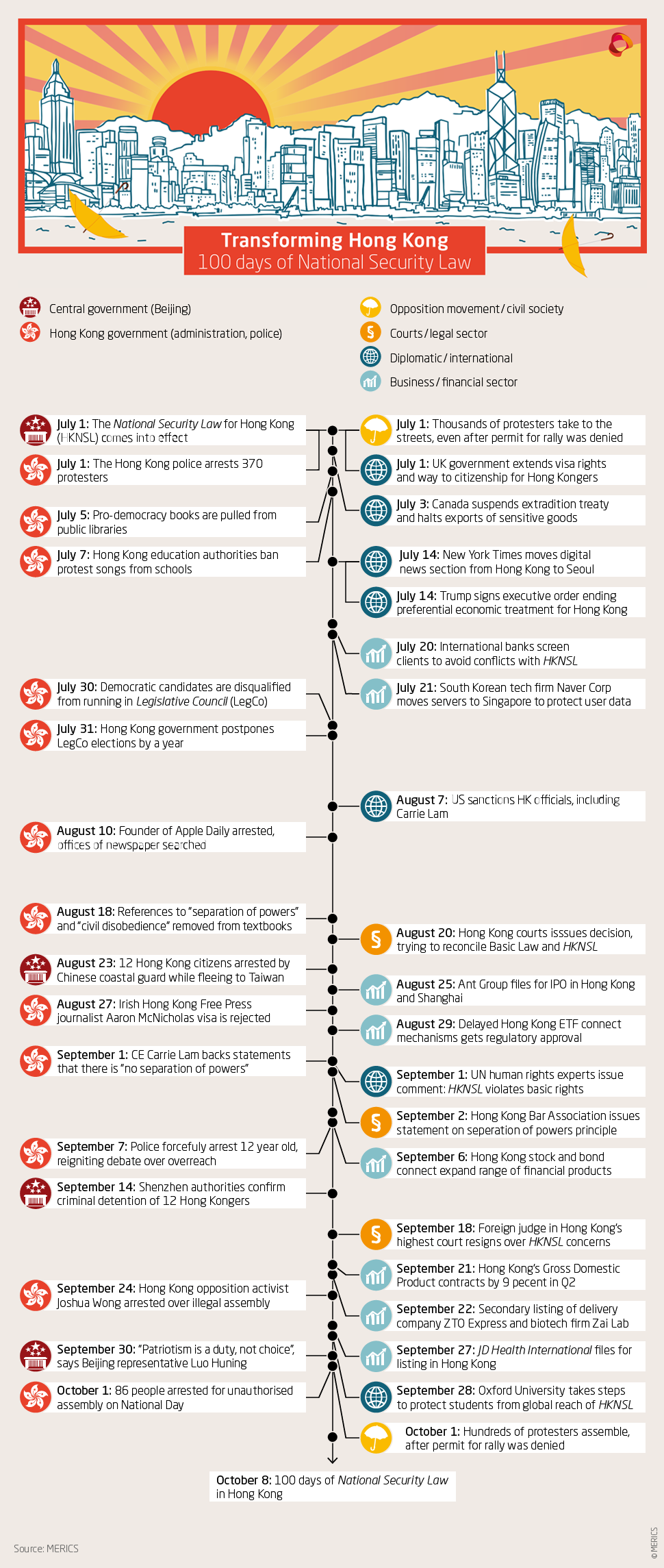Hong Kong Apostasy
‘The voice of the nightingale is still; I hear only the sound of crows.’
— Empress Dowager (played by Flora Robson) in
55 Days at Peking (1963)
In Viral Alarm: China Heritage Annual 2020 we have previously remarked on the unsettling echo that can readily be detected between the xenophobic extremism of late-dynastic Qing politics and recent developments in the People’s Republic of China occasioned by the 2019-2020 coronavirus epidemic.
In particular, we have featured observations made by Zi Zhongyun (資中筠, 1930-), a noted expert in the People’s Republic on American diplomatic history and the study of the United States more broadly, on the resonances, if not the repetition, of the unsettling themes and tropes of the two ‘gengzi years’ of 1900 and 2020. (A ‘gengzi year’ 庚子年 occurs every thirty-seventh year in the traditional sixty-year lunar calendrical cycle. In modern times, and in the popular imagination, ‘gengzi years’ are associated with disaster and hardship: the gengzi year of 1840 coincided with the First Opium War with Britain; 1900 was the year of the Boxer Rebellion, discussed by Zi Zhongyun; and 1960 marked a particularly harrowing period during the Great Famine that followed the Great Leap Forward.)
On 24 April 2020, Zi Zhongyun released an online meditation cum-cry-of-despair under the pseudonym ‘A Learned Woman of China’ (see 中華女先生, ‘庚子年的優思’, 2020年4月24日. For a version of this text read out loud on YouTube, see here). In what was both an historical overview and a personal reflection, Zi reviewed the kind of national and existential anxiety that thinking people in China have shared, to a greater or lesser extent, since the late-nineteenth century. The two revolutionary Chinas born of the collapse of dynastic rule — the Republic of China and the People’s Republic that succeeded it on the mainland in 1949 — were forged in a fiery crucible of righteous nationalism and xenophobic outrage. War, invasion, internecine strife, radical self-hate and bloody mindedness throughout the twentieth century formed the bedrock of patriotic neurosis in China today.
A translation of Zi Zhongyun’s sombre reflections appeared in China Heritage under the title ‘1900 & 2020 — An Old Anxiety in a New Era’ (28 April 2020). A little over two months later, on 30 June, Beijing announced and immediately imposed a National Security Law on Hong Kong. In the summer of the ‘gengzi year’ of 1900, the Boxers — a force of xenophobic zealots supported by the Qing government — besieged the foreign legations in Beijing. The standoff continued for a bloody fifty-five days and only ended when an international coalition army entered the Chinese capital, put down the rebellion and relieved the embassies.
In the summer of 2020, Beijing reneged on its own undertaking regarding the status and governance of the former British Colony. The vaunted, and previously agreed, post-1997 ‘One Country, Two Systems’ model was effectively replaced by ‘one country with a territory under a permanent state of siege’, thereby adding Hong Kong to the other besieged Chinese territories of Tibet and Xinjiang. The following graphic offers an overview of the first one hundred days of Hong Kong’s beleaguered future.
***
‘Transforming Hong Kong: 100 days of the National Security Law’ was produced by Katja Drinhausen of the Mercator Institute for Chinese Studies (MERICS). We would like to thank the author and Claudia Wessling, Publications Director of MERICS, for their kind permission to reproduce it here. We are also grateful to Constant Reader #1 for bringing this material to our attention.
— Geremie R. Barmé
Editor, China Heritage
8 October 2020
***
Related Material:
- Zi Zhongyun 資中筠, ‘1900 & 2020 — An Old Anxiety in a New Era’, China Heritage, 28 April 2020
- Michael C. Davis, ‘Making Hong Kong China’, Democracy Digest, 5 October 2020, an excerpt from Making Hong Kong China: The Rollback of Human Rights and the Rule of Law published by Association for Asian Studies, October 2020
- Margaret Ng 吳靄儀, ‘Hong Kong 攬炒 — Burning Down the House’, China Heritage, 1 May 2020
- Tsang Chi-ho 曾志豪 and Lee Yee 李怡, ‘The Mandela Effect — The Unquiet End of Hong Kong Headliner’, China Heritage, 24 May 2020
- Wu Chun Him 胡俊謙, ‘Cross-Examination — Seven Questions for Those Who Would Teach Hong Kong’s Teachers’, China Heritage, 16 June 2020
- Lee Yee 李怡 & The Editor, ‘Jimmy Lai, the Twilight of Freedom & the Dawn of “Legalistic-Fascist-Stalinism” 法日斯 in Hong Kong’, China Heritage, 12 August 2020
- Tsang Chi-ho 曾志豪 and Ng Chi Sam 吳志森 (RTHK), et al, ‘Hong Kong & 講耶穌 gong2 je4 sou1’, China Heritage, 6 October 2020
- Viral Alarm: China Heritage Annual 2020
- Hong Kong Apostasy, China Heritage, 1 July 2019-1 July 2020

***
Source:
- Katja Drinhausen, ‘Transforming Hong Kong: 100 days of the National Security Law’, MERICS, 7 October 2020

